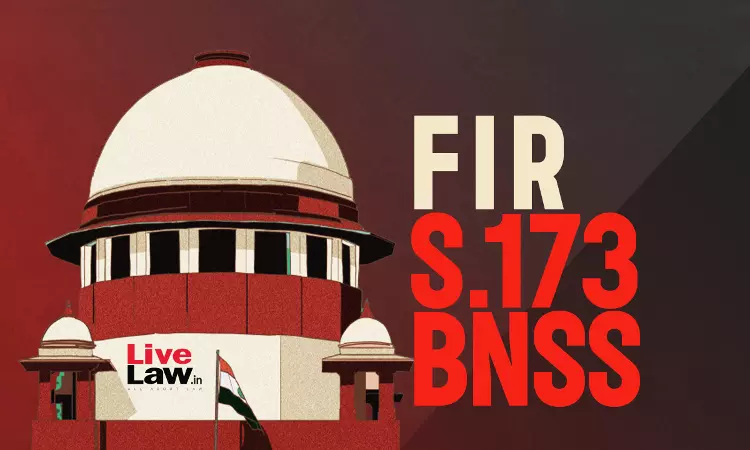Supreme Court Mandates Preliminary Inquiry Before FIR On Certain Offences Related To Speech & Expressions
Amisha Shrivastava
28 March 2025 8:21 PM IST

Next Story
28 March 2025 8:21 PM IST
With the aim of curbing frivolous FIRs against speeches, writings and artistic expressions, the Supreme Court on Friday mandated that a preliminary inquiry must be conducted before lodging the FIR, if the offences alleged are punishable with imprisonment between three to seven years.The Court held so after referring to Section 173(3) of the Bharatiya Nagarik Suraksha Sanhita (BNSS).Section...
